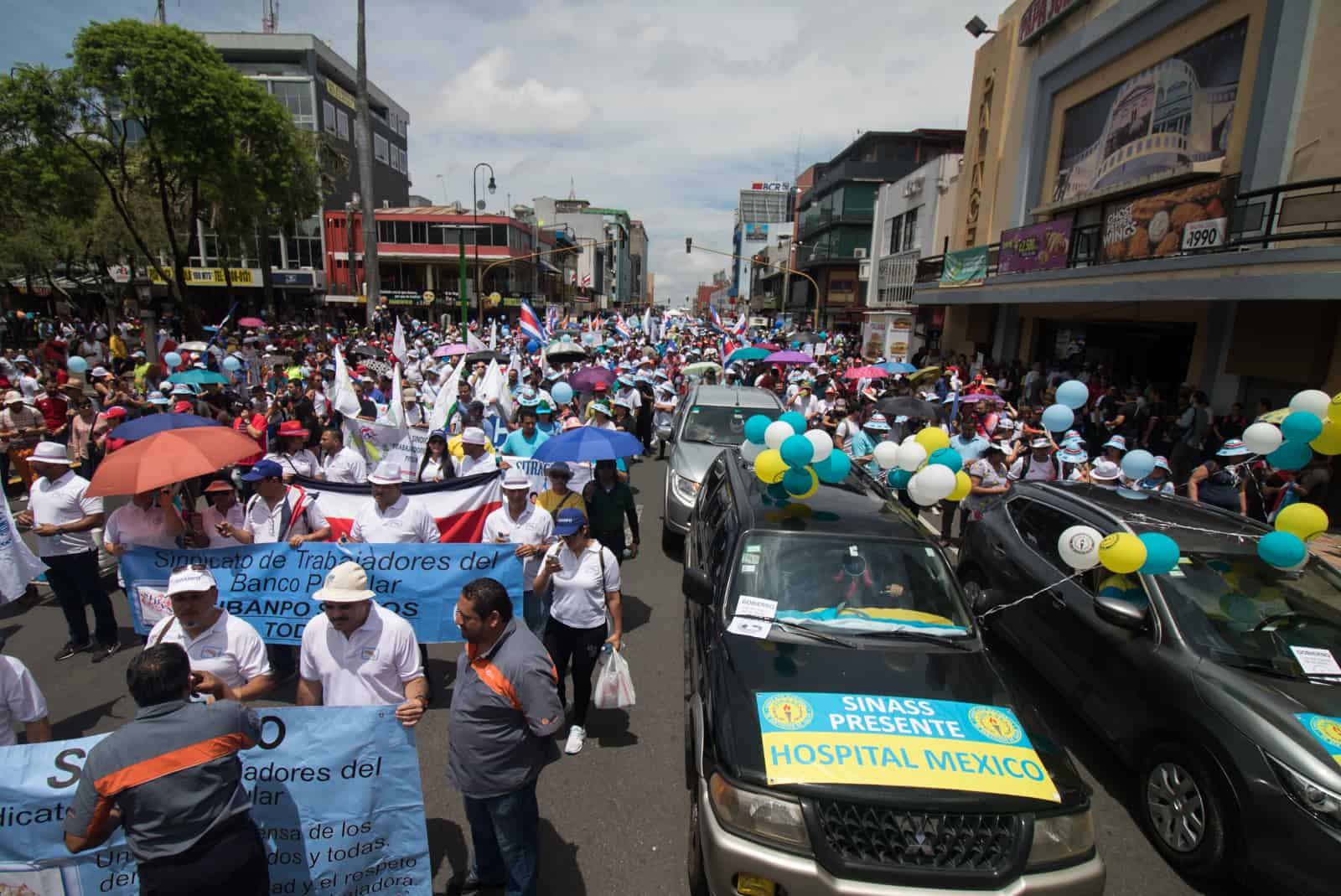The Costa Rican Congress approved Thursday in a first debate a bill that regulates the right to strike, while hundreds of public-sector workers protested in front of the Legislative Assembly headquarters.
The initiative was promoted by opposition deputy Carlos Ricardo Benavides and was supported by President Carlos Alvarado.
The initiative prohibits strikes in essential public services such as health, safety, school lunchrooms, and water and energy supply. It also puts limits on work stoppages in education.
It would allow for the suspension of the salary of striking workers and imposes penalties for those who block roads as part of a work stoppage.
“Today we have established (a project) for strikes to remain legal — the right to strike is maintained, but without abusing citizenship,” Benavides said after the vote.
President Alvarado thanked the Legislative Assembly for the approval of the project, and said that the bill “will provide greater legal certainty to all sectors and guarantee that right (to strike) without affecting services.”
The law project was promoted shortly after Costa Rica was paralyzed by a prolonged public sector strike in 2018 against a government-led fiscal reform.
The tax reform was approved by the legislature later in 2018 despite the heavy opposition.
While the deputies voted the strike law, representatives of the public-sector unions expressed their rejection of the bill, which will require a second vote and presidential ratification before it enters into force.
Protesters waved union flags and played drums in a festive atmosphere.
Gilberto Cascante, president of the National Association of Educators, accused the government and the Legislative Assembly of promoting initiatives of interest to the business sector, to the detriment of the workers.
“Costa Rica has to know that we have been fighting until the end, and if that thought is not changed, this country is going to get out of hand,” Cascante warned.






